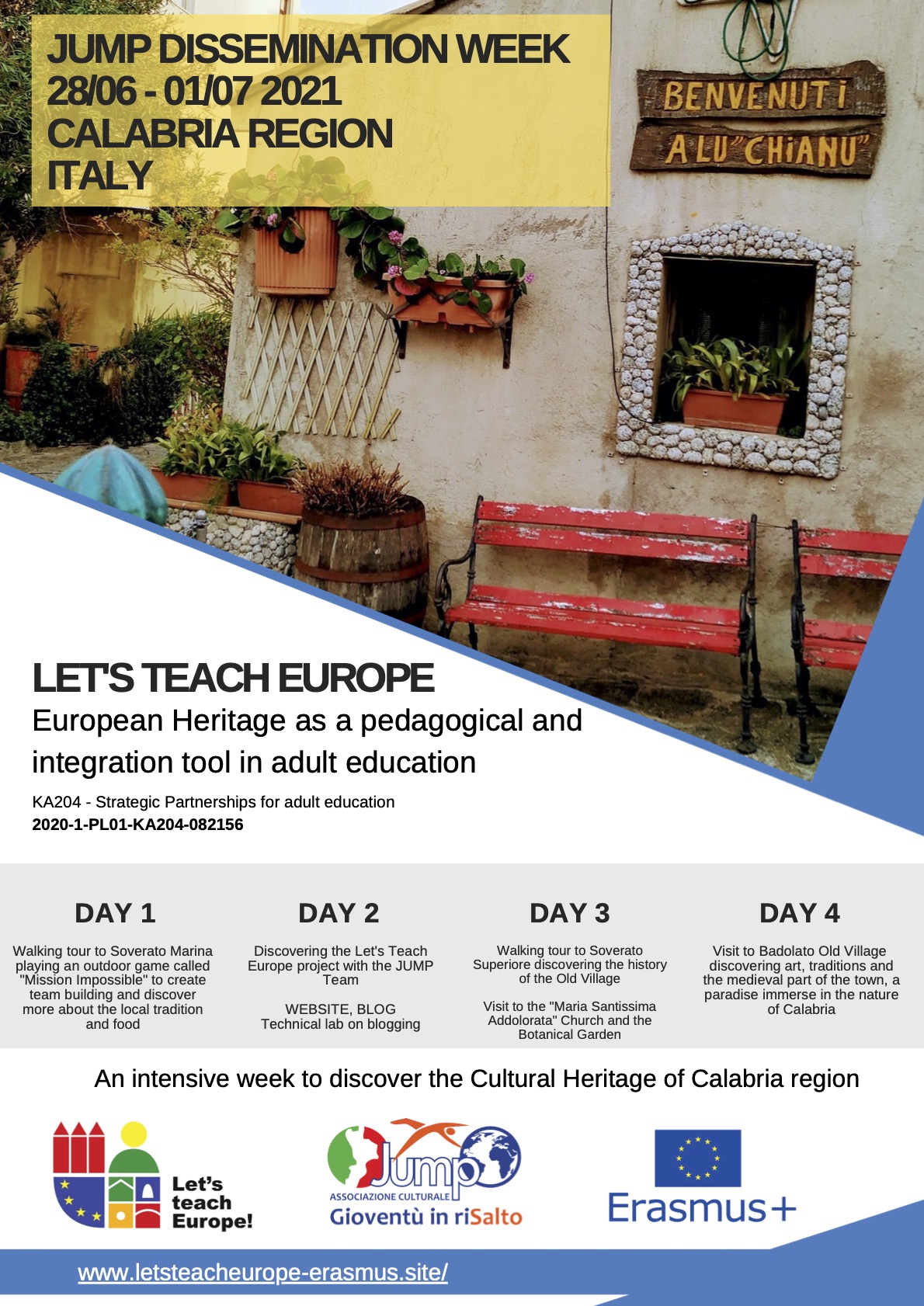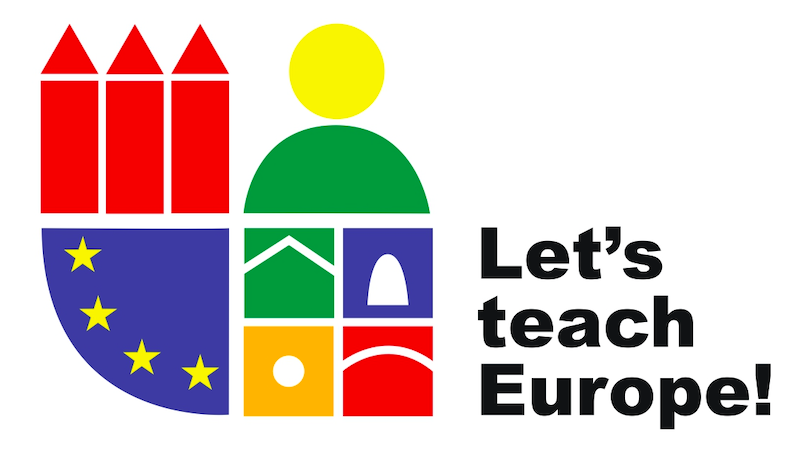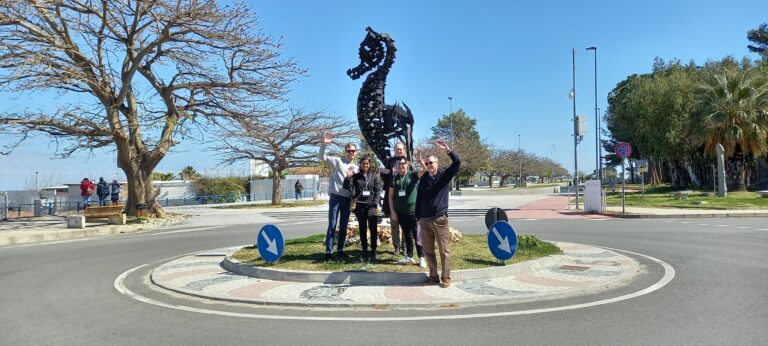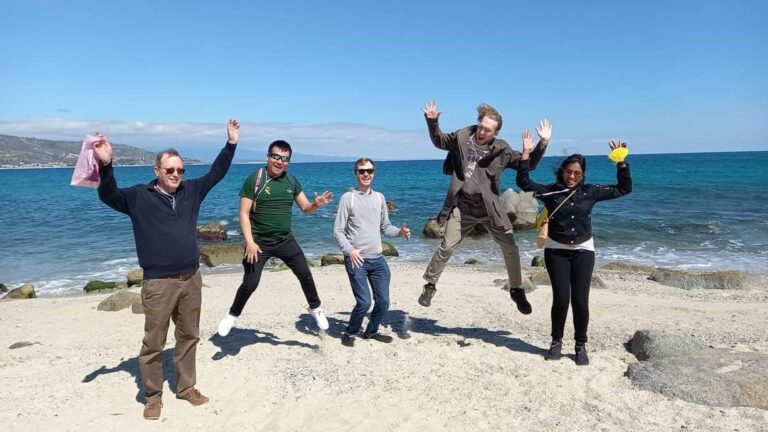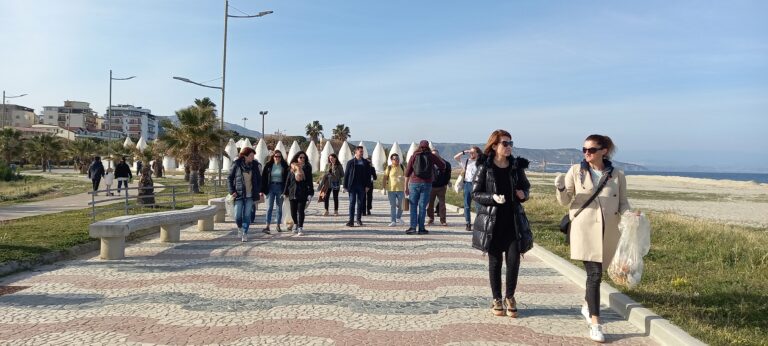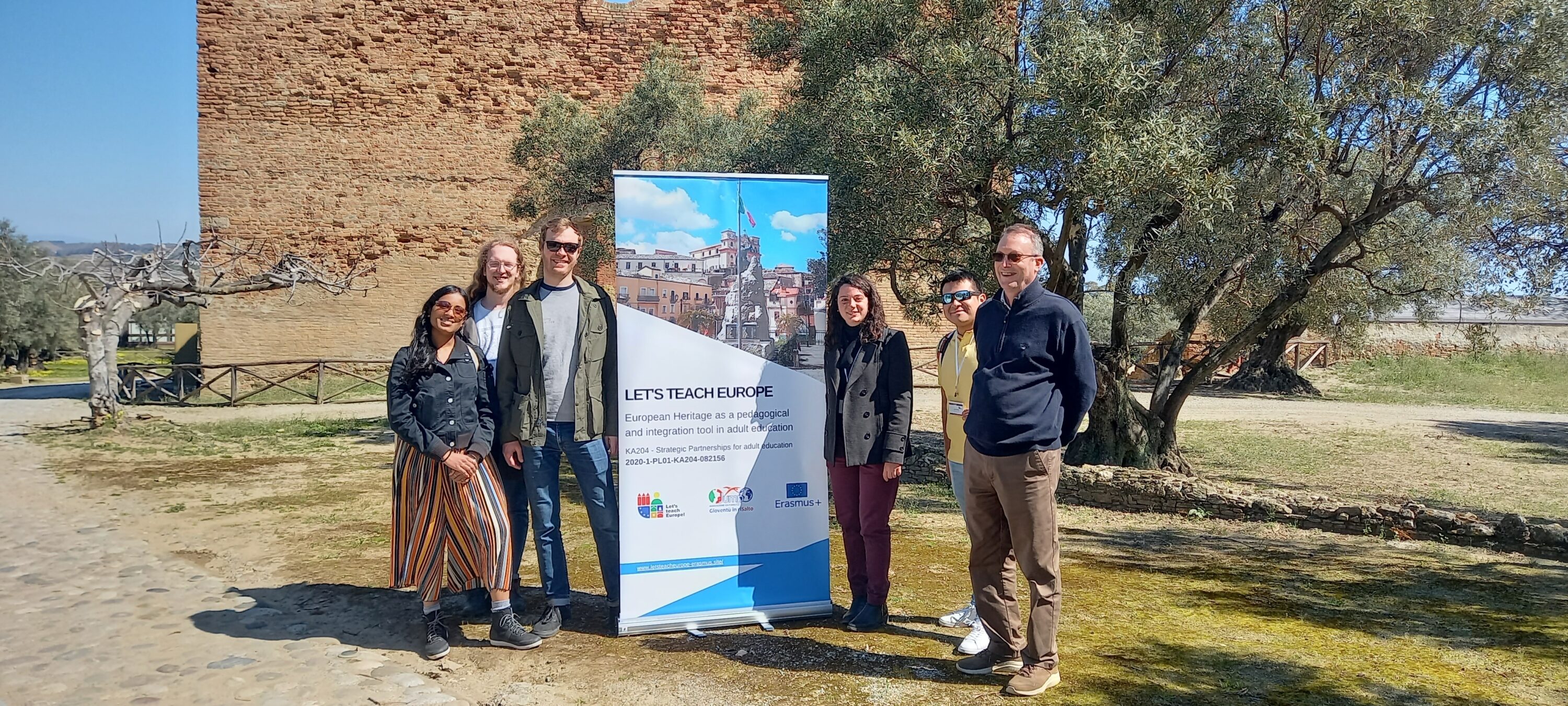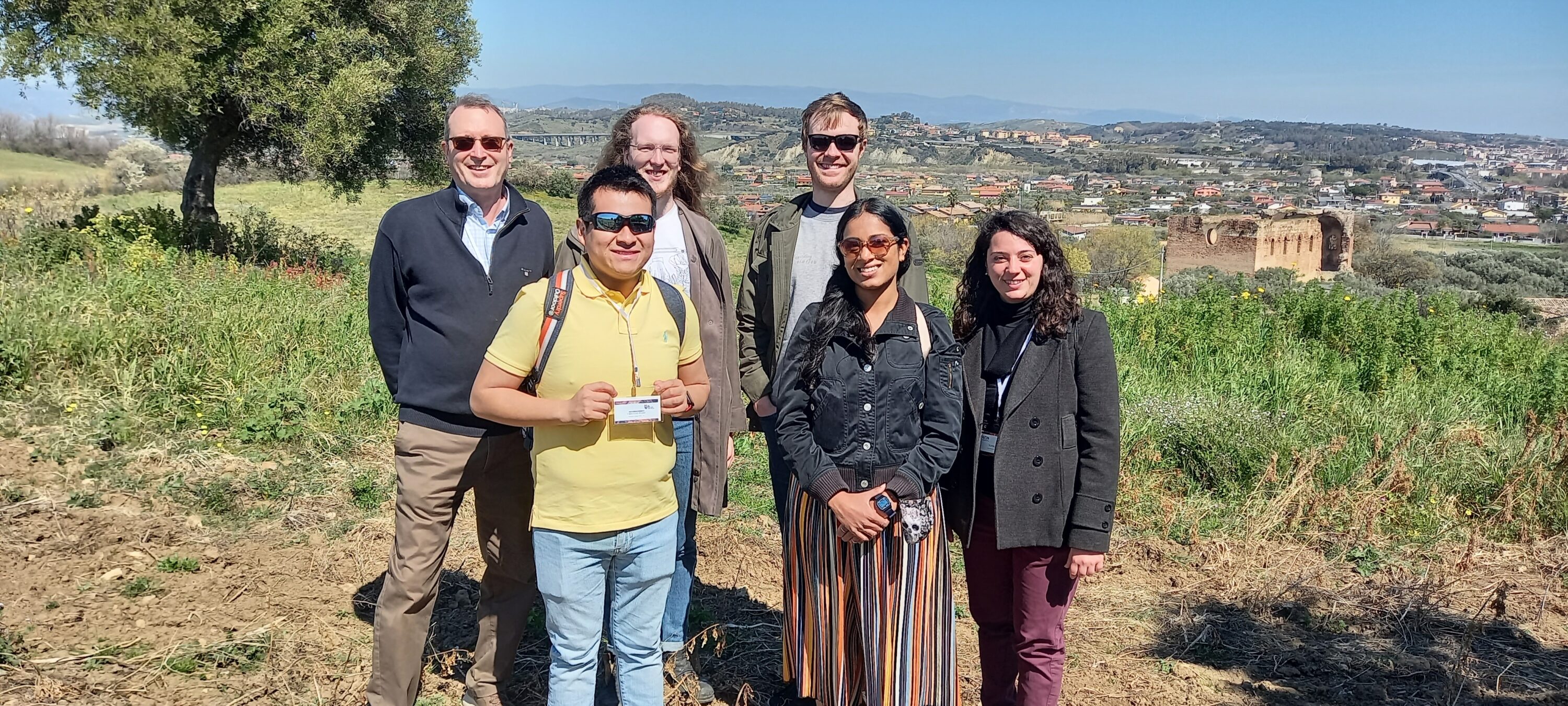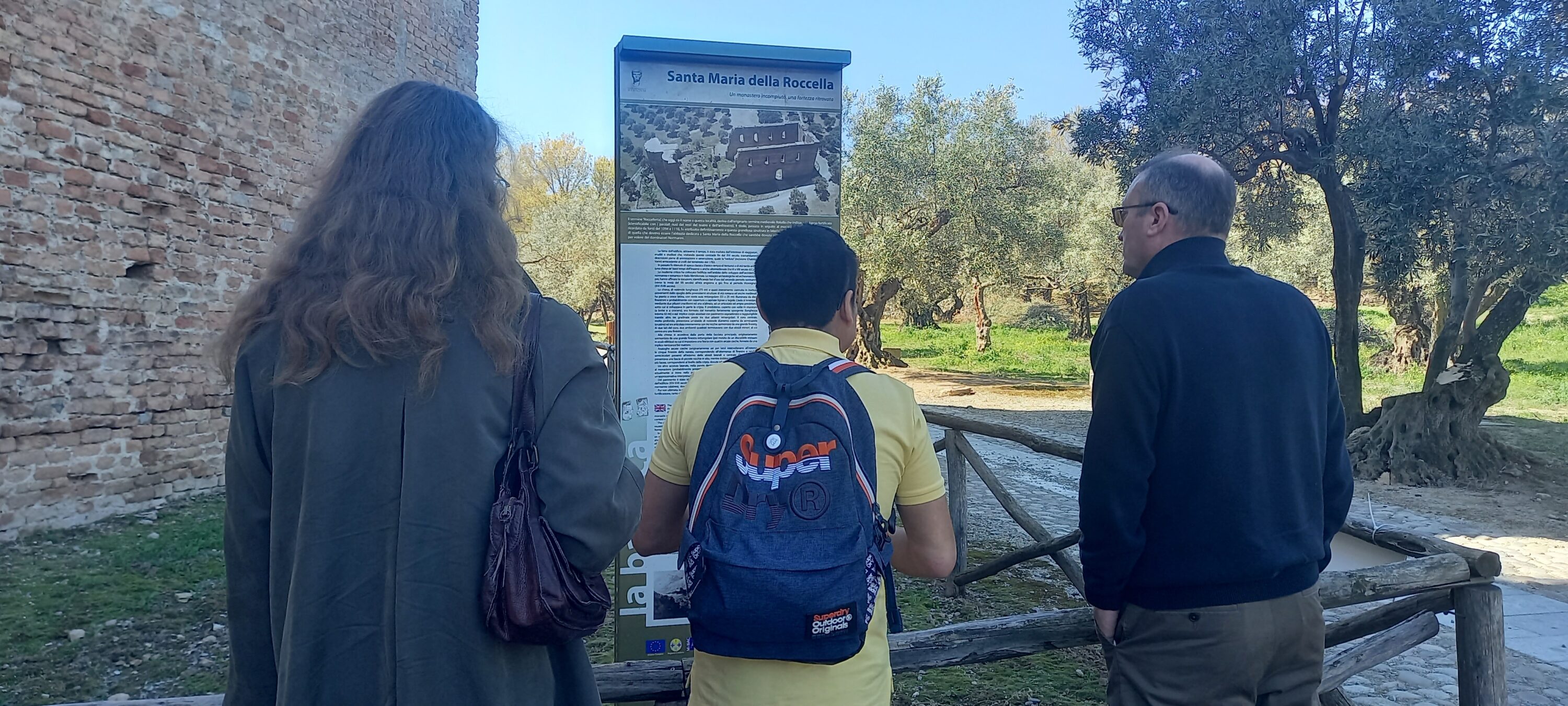LTT Calabria - March 14 - 19, 2022
This mobility was planned for June’21. However, because of the pandemic and long lockdowns, it was not possible for a long time. Finally, with the consent of the National Agency, the learners’ mobility in Soverato was implemented 2 times- in September’21 for the Spanish and Polish team and in
March’22 for the British team who could not go abroad in Sept’21.
The British team came to Soverato in March’22 and to covered the same educational programme. The blended mobility for the British team took lasted 5 full training days. Teams of 4 Adult and Senior students, accompanied by 1
educator, met the Italian partners in Soverato for language and culture exchange and to learn the Calabrian heritage.
Participants experienced in-formal “learning by doing”. They learned about Calabrian heritage and acquired new intercultural competences thorough visiting villages and interacting with local community. Local seniors from isolated villages in a poor area of Italy, had the chance to experience Europe.
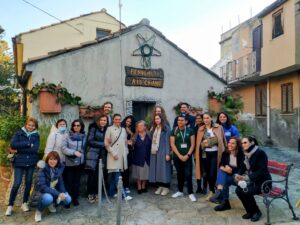
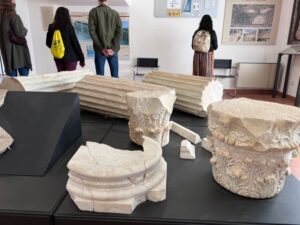
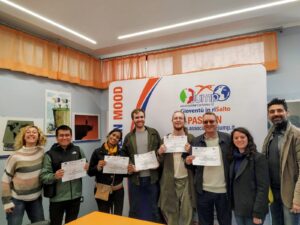
The Route brought participants to 3 traditional villages: Soverato Superiore, medieval Badolato and San Floro on the “silk way”.
Activities caried out:
- discovering the town of Soverato Superiore, meeting its inhabitants, exploring the local history and tradition during a game Mission Impossible;
- experiencing local storytelling of the past and discovering “Renaissance of Calabria” in a small little Church of the village and exploring the natural heritage of the old mountain village, the olive trees valley, the botanical garden.
- learning about the Cultural Heritage of Calabria during indoor presentations about the cultural and linguistic roots of Calabria and local food, traditions and religion -getting to know the Calabrian history and its Greek and Latin roots during during a visit to Parco Scolacium archeological site
- discovering local products and cuisine during visits to a local market and a trattoria -exploring the cultural and religious heritage of the old convent, Convento francescano di Santa Maria degli Angeli, during a visit to Badolato
- listening to the local stories during a visit to the old village of Badolato with a local storyteller
- exploring the topic of local art and handicraft during a visit to Squillace village of ceramics -discovering the local silk production with worms, respecting the old traditions with the loom, using natural colors, as an example of circular, sustainable and ecological economy during a visit to Cooperative Nido di Seta in San Floro
- meeting a local citizen who created first shared vegetable garden, recovered old grains and bought with crowd funding an old stone mill, observing the traditional way of producing flour and visiting a local bakery -exploring the topics of young entrepreneurship, rural realities, traditional cuisine, green and circular economy during a visit to San Vito sullo Ionio to local entrepreneurs, producing cheese and vegetables
- exploring the topics of the revitalization of old villages,
traditional cuisine and the circular economy of bread during a visit to il Mulinum company in San Floro, where young people revitalized the abandoned village by cultivation of the old grains and the traditional way of producing flour - discovering the community for life, Mondo X in Badolato, where people in difficulty live in a 17th-century former Franciscan monastery and commit themselves to work and prayer, supporting one another, without modern
electronics or connection with the outside - exploring the heritage of the capital of Calabria, the city of Catanzaro
- language, musical and cultural exchange among participants from Poland, Italy, Spain Apart from the Calabrian Heritage Route, the participants took part in other educational activities and language and cultural exchange, planned and prepared in detail during on-line collaboration within a blended mobility eg presenting the British school and Southampton, preparing digital documentation of the meeting.
Results:
- improved competences: language and intercultural skills, knowledge of European heritage, digital skills gained by photo and film documenting the mobility, new motivation for learning
- developing long relationships between students and staff of the 4 institutions from different regions of Europe
- Calabria Heritage Route promoted as a carrier of important knowledge and common values thorough the project website where participant will their photos
- engaging senior local people from Calabria abandoned villages into the process of culture heritage exchange
- promoting Erasmus+ and the lifelong learning approach among generations
- Dissemination Week June 28 – July 1, 2021
- LTT in Calabria
